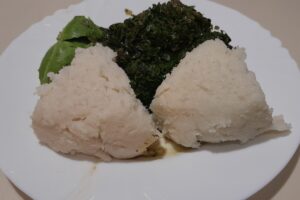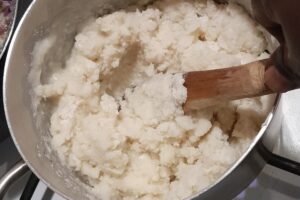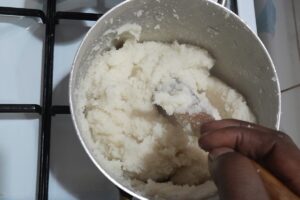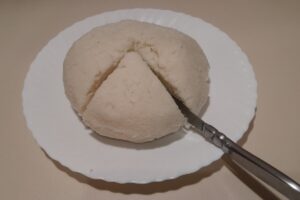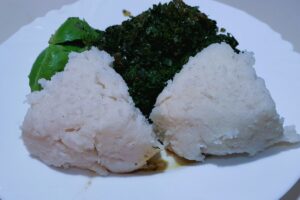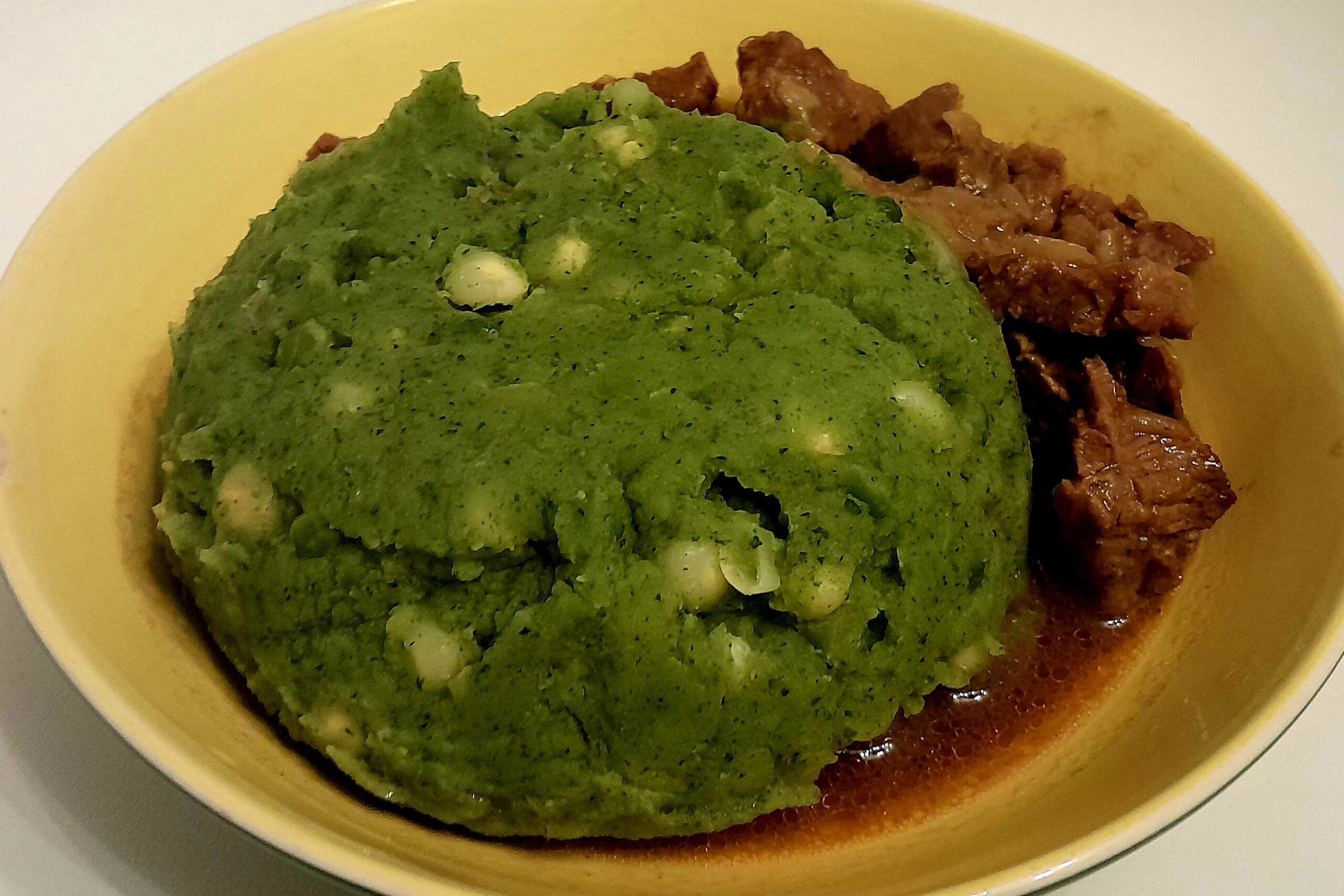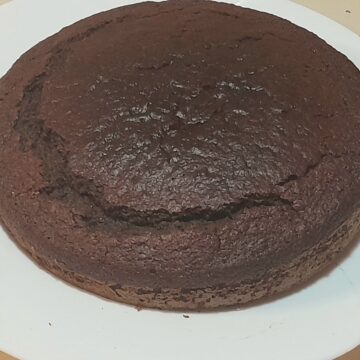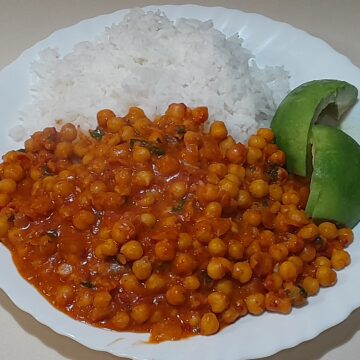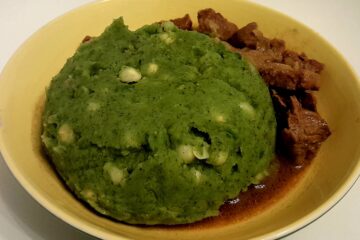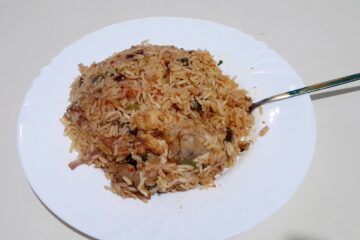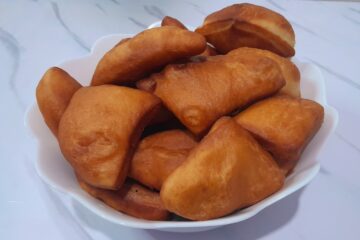Ugali is a staple food in Kenya and one dish that you will never miss in any Kenyan household. It is cherished across Kenya for its simplicity, versatility, and the comforting sustenance it provides.The beauty of ugali is that it is usually eaten by hand, it’s a cheap and readily available source of carbohydrates and it is easy to prepare and store. This makes it a convenient food for most households in Kenya.
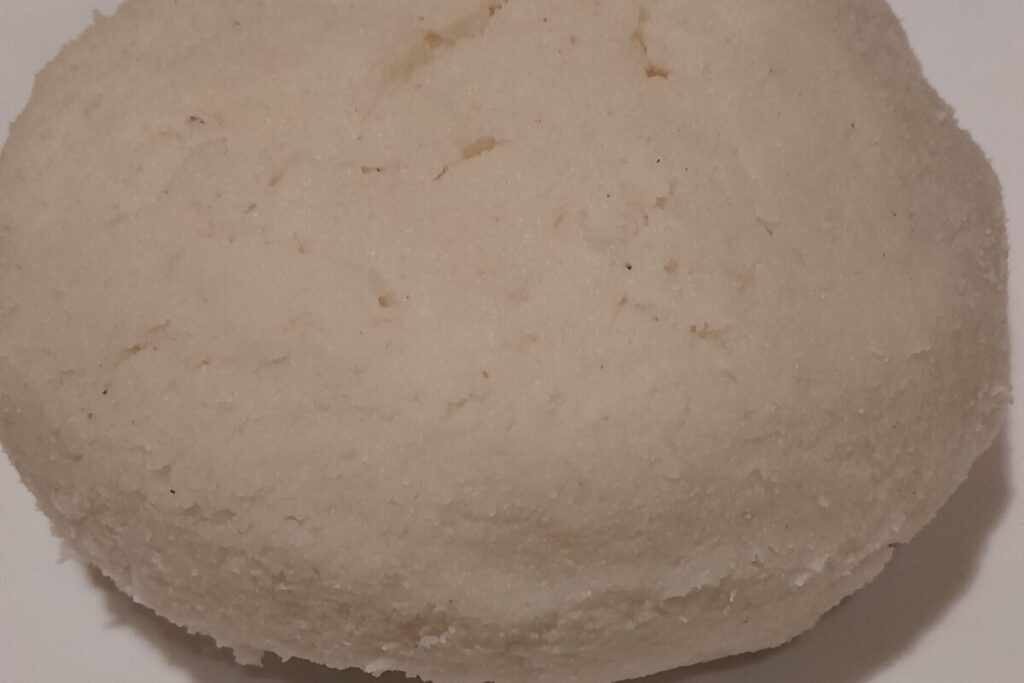
Kenyan Ugali is primarily made with maize flour (corn flour) and water. The flour is mixed with hot water to form a dough-like consistency. The preparation of ugali is both an art and a tradition, passed down through generations.
Ugali can also be made with other flours such as cassava and millet flour. Ugali made this way is usually brown and is more commonly preferred in Western and Nyanza regions of Kenya. This brown ugali is considered healthier than the white one.
How to serve Kenyan Ugali
Ugali is a versatile food that can be served with a variety of side dishes. Typically, it is served with stews or soups made from vegetables or meats. It is served with stew made of meat like chicken and beef or fish. If you are vegetarian like I am, you can serve your Ugali dish with vegetable like Sukuma wiki (collard greens) and Managu (African nightshade). And if you are a lover of fermented milk like mala or mursik, Ugali will go well with these too. Did you know that you can make ugali fries and serve with your favorite dipping sauce? oh yes you can! That’s how versatile it is.
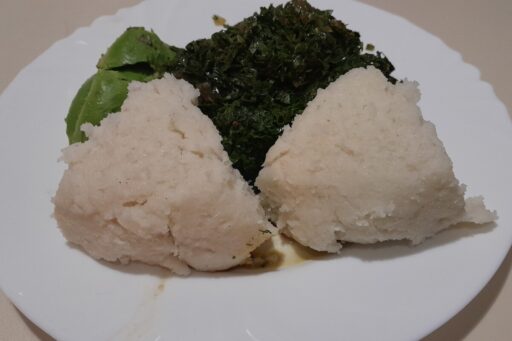
Variations of Ugali
There are several variations of Kenyan Ugali, The varieties depend on the flour that you use. Ugali can be made using different types of flour such as cassava, millet, and corn. Other variations include adding ingredients such as butter to add flavor and nutrients. It can also be made with a hard or soft consistency by using a higher ratio of water to flour. Ugali can also be shaped into different forms, such as rolls or balls, for a fun twist on the classic recipe.
How to make Ugali
Let’s make some plate of Kenyan Ugali, shall we!
Ingredients:
- 2 cups of maize flour (corn flour). You can adjust this depending on the consistency that you prefer
- 4 cups of water
Instructions:
- In a pot, bring the water to a boil.
- Slowly add the maize flour to the boiling water while stirring constantly with a wooden spoon.
- Continue stirring until the mixture thickens and pulls away from the sides of the pot. This should take about 5-7 minutes.
- Reduce the heat to low and continue to stir for an additional 5-8 minutes, until the mixture becomes smooth and free of lumps.
- Using the wooden spoon, shape the Ugali into a big ball then remove the pot from the heat. Remove the Ugali from the pot and place it onto a plate. Alternatively, remove the pot from the heat then let the Ugali cool first before shaping it into a big ball or small balls.
- Serve the Ugali hot with some beef stew, or vegetables of your choice. Enjoy your homemade Ugali!
How to make Kenyan Ugali (cornmeal)
Ingredients
- 2 cups maize flour
- 4 cups boiling water
Instructions
Step One:
- In a pot, bring the water to a boil.
Step two:
- Slowly add the maize flour to the boiling water while stirring constantly with a wooden spoon.
- Continue stirring until the mixture thickens and pulls away from the sides of the pot. This should take about 5-7 minutes.
- Reduce the heat to low and continue to stir for an additional 5-8 minutes, until the mixture becomes smooth and free of lumps.
Step Three:
- Using the wooden spoon, shape the ugali into a big ball then remove the pot from the heat. Remove the ugali from the pot and place it onto a plate. Alternatively, remove the pot from the heat then let the ugali cool first before shaping it into a big ball or small balls.
- Serve the Ugali hot with a stew, soup or vegetables of your choice. Enjoy your homemade ugali!
Notes
Nutrition
Nutrition Facts
6 servings per container
Calories219.6
- Amount Per Serving% Daily Value *
- Total Fat
0.81g
2%
- Sodium 0.59mg 1%
- Amount Per Serving% Daily Value *
- Potassium 52.7mg 2%
- Total Carbohydrate
48.46g
17%
- Sugars 0.37g
- Protein 3.27g 7%
* The % Daily Value tells you how much a nutrient in a serving of food contributes to a daily diet. 2,000 calories a day is used for general nutrition advice.


